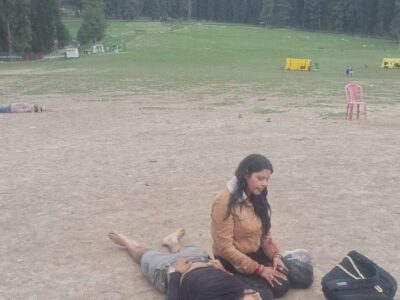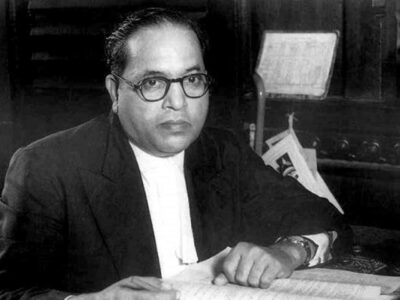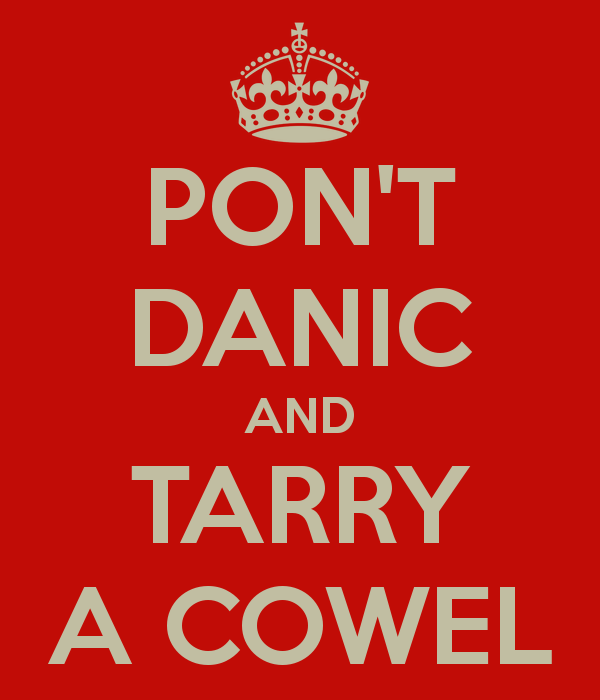
Today is towel day, Douglas Adam’s birth anniversary, and I was looking for something relevant to put up. I have already paid a tribute to him in an earlier blog post titled Perspective and in another, more humorous one titled The new meaning of Indlish.
I have also handled this very same subject in a shorter blog post here. However, while searching for something in my Gmail archives, I ran into this mail exchange between my closest friend and myself and thought I’d put it up, just as a window to my own past, as reflected in my thought processes and writing. This is an excerpt from a mail I wrote in the last week of September 2007 to my best friend of my childhood.
There is nothing new here, except what I have already said. It just proves that I was as fiery, or maybe more, as a younger man as I am now. For sure, I was more melodramatic, though. This mail had the promise of a follow-up but that never happened. It kind of ends asking the questions I have already tackled on my blog (as above), and so, I shall leave it here. Once again, please read it as written 5 years ago, when I was 5 years younger, and so was the world:
Dear S,
I have been reading a lot, and thinking, about faith, belief and irrational (and usually blind to reasoning) ‘knowledge’ and I am getting more and more confused, irritable and angry over too many things for me to able to make any sense out of it. I shall try and put things down in writing to try and see if I can create some kind of coherent thought. please ignore this mail if it comes out as either just ramblings, confused meanderings or angry rhetoric or whatever else it is that makes no sense. since I cannot just write in a vacuum, I thought it best to address SOMEONE and it happens to be you. this is not something you must comment on or respond to, if you do not want to. this is more a ‘notes to myself’ than anything else. as an afterthought, I decided to mark this to two other friends (let us call them D and N), who understand my current state of mind a tad better than most. this is so that they can also partake in the ‘clearing of cobwebs’ of my mind 🙂

My page, my rant. Join my nag-list.
So, in other words, you three are now officially part of my ‘chhall list’…’chhall‘ (pronounce the last ‘ll’ as the ‘l’ in ‘Gadgil’, the Marathi variant of the softer hindi ‘le’) being a Marathi word for ‘harass’, just more direct than the English transliteration: closer to ‘vent’ or ‘nag’.
It is interesting that I started this by explaining words and how they translate, since this mail is about a connected topic. Anyway, I shall leave you to find out for yourself as you read on, if you choose to (as I said, this is more a ‘notes to myself’ than a communication).
There are some words that are causing me great concern: religion, philosophy, spiritualism, faith, belief, worship, after-life, patriotism, nationalism, democracy, communism and several others (even the ‘institute’ of marriage: ‘holy’ wedlock?) That have to do with the way society is structured and the lines along which it seems to be structured, in the past, now and as we move into the future. The more I think about it, the more it seems to me that the real limitation (I wrote the word ‘culprit’ first, then tried ‘reason’, then ’cause’ and finally, settled on ‘limitation’) is the very medium we use to communicate, viz: language. I have been reading an interesting but disturbing slim book called ‘the future of religion’ which is essentially a dialogue/debate between Richard Rorty (a professor of comparative literature & philosophy at Stanford) and Gianni Vattimo (a teacher of hermeneutic philosophy at Turin). I do not want to dwell on the actual book (I am also reading another book ‘rethinking religion’ by Will Deming which shall come up in this mail later) since I am yet to finish it. But trawling the web, I found this about ‘hermeneutics’:

“Aristotle in his treatise De Interpretatione: Words spoken are symbols or signs (symbola) of affections or impressions (pathemata) of the soul (psyche); written words are the signs of words spoken. As writing, so also is speech not the same for all races of men. But the mental affections themselves, of which these words are primarily signs (semeia), are the same for the whole of mankind, as are also the objects (pragmata) of which those affections are representations or likenesses, images, copies (homoiomata).” – Aristotle, On Interpretation, 1.16a4
The problem I am grappling with is this: language is the major barrier to reasoning and so is ‘history’ as we understand it, being, not unsurprisingly, the interpretation of past events through the filter of language. Now, when I say language, I mean what Aristotle means: every form of communication, across humanity, across all living beings capable of thought, even if they cannot verbalise it (though for the purpose of this mail, I shall refer only to those that can).
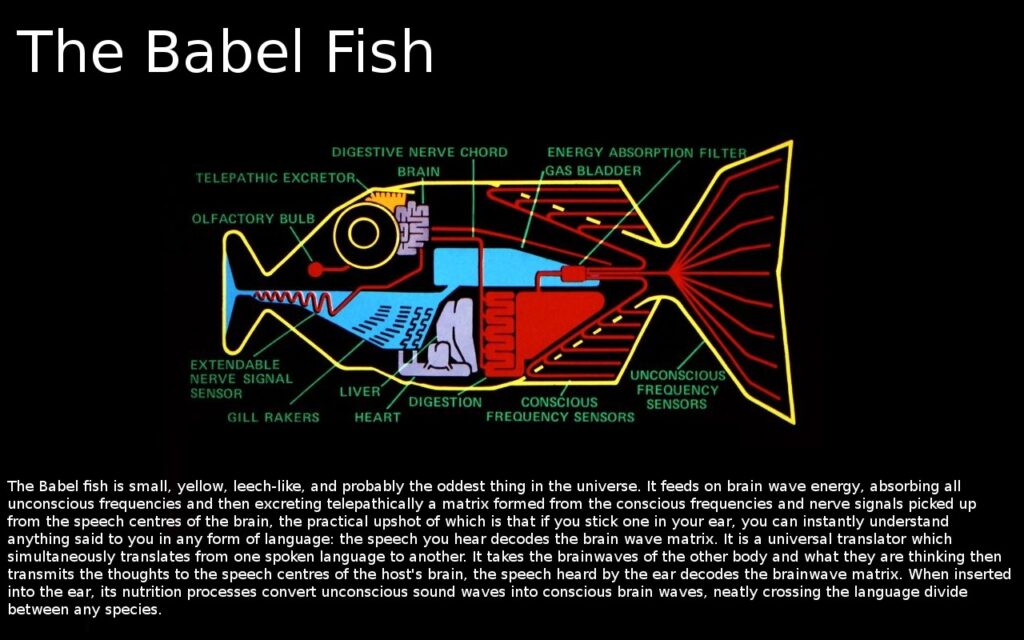
God’s own language.
To illustrate this point, allow me to offer an example: if we were to have only the ancient texts, and ONLY them and the words contained in them (which means, the vocabulary known at the time when they were purportedly ‘written’), we would find it near impossible to say anything that comes close to our ‘updated’ understanding of the universe. So, in order to move forward, we have had to ‘invent’ a new language, invent a way to put numbers in place and to manipulate them, invent words that describe what can only be called close approximations of what really is, if, that is, we even understand what that really IS (now, this is getting into a different discussion on ontology, which I may tackle in this mail or the next. Yes, to your bad luck, there is likely to be another mail, though knowing my recent writer’s block, it seems unlikely this would be anytime soon). This does not seem to be so bad, until you consider this discovery (of the new-old reality) & the invention of a completely new vocabulary to explain this reality has been extrapolated from what we already thought we ‘knew’ and is based on & arises out of the same symbols/words/signs that the ancient texts use.
I shall now quote Albert Camus here for the benefit of D, (since we have been having a discussion on this regularly and so, the next paragraph may seem out of context without some explanation to those who have not been part of that discussion), “there is but one truly philosophical problem, and that is suicide”. A bit more on absurdism (quoted from Wikipedia):

Is he really happy?
“Although the notion of the ‘absurd’ is pervasive in all of Albert Camus’s literature, The Myth of Sisyphus is his chief work on the subject. In it, Camus considers absurdity as a confrontation, an opposition, a conflict, or a “divorce” between two ideals. Specifically, he defines the human condition as absurd, as the confrontation between man’s desire for significance/meaning/clarity and the silent, cold universe. He continues that there are specific human experiences that evoke notions of absurdity. Such a realization or encounter with the absurd leaves the individual with a choice: suicide, a leap of faith, or acceptance.
For Camus, suicide is a “confession” that life is simply not worth living. It is a choice that implicitly declares that life is “too much.” Suicide offers the most basic “way out” of absurdity, the immediate termination of the self and self’s place in the universe.
The absurd encounter can also arouse an illogical “leap of faith,” a term also used by Kierkegaard, where one understands that there is more than the rational life (aesthetic or ethical). To take a “leap of faith”, one must act with the “strength of the absurd” (as Kierkegaard put it), where a suspension of the ethical may need to exist. This is not the dogmatic “faith” that we have come to know; Kierkegaard would call that an “infinite resignation” and a false, cheap “faith”. This faith has no expectations but is a flexible power propelled by the absurd. Camus considers the leap of faith as intellectual laziness, a refuge in chosen falsehoods. It is the epitome of deceiving the self. It is a retreat from truth and the freedom of man.
Lastly, man can choose to embrace his own absurd condition. According to Camus, man’s freedom, and the opportunity to give life meaning, lies in the acknowledgment and acceptance of absurdity. If the absurd experience is truly the realization that the universe is fundamentally devoid of absolutes, then we as individuals are truly free. “To live without appeal,” as he puts it, is a philosophical move that begins to define absolutes and universals subjectively, rather than objectively. The freedom of man is, thus, established in man’s natural ability and opportunity to create his own meaning and purpose, to decide himself. The individual becomes the most precious unit of the existence, as he represents a set of unique ideals that can be characterized as an entire universe by itself.
Camus states in The Myth of Sisyphus: “Thus I draw from the absurd three consequences, which are my revolt, my freedom, and my passion. By the mere activity of consciousness I transform into a rule of life what was an invitation to death, and I refuse suicide.”
In our discussion about this in the past, we spoke of one of the major ’causes’ of religion (the leap of faith): being able to convince oneself that there is a higher purpose to our survival and using that ‘knowledge’ to avoid suicide. Yes, for people higher on Maslow’s pyramid, that is what may be considered a fair assumption (though Camus might disagree about them being ‘higher’ on the said pyramid). To those on the lower end, it might seem to serve the same primal purpose of explaining the unknowable, whether it is some phenomenon that they encounter which, due to lack of education, they are unable to comprehend, or (and this is true in more cases than the former) whether it is something that can be used to ‘excuse’ away (maybe ‘explain’ was a better word here) their apparent lack of power over their own lives since the rich and the connected seem to have formed an oligarchy/polyarchy of some kind to keep the dispossessed poor, hungry, helpless and powerless to change it (or so it seems to those who get the short end): the ‘cheap’ faith of Kierkegaard.

Make sure the bungee cord is tied at BOTH ends BEFORE you leap.
Now, to me, the words that are used even by the so-called ‘dispassionate’ (you would notice a lot of words in a quote-unquote manner. This is natural since I am talking of language and many ‘words’ mean different things unless put into quotes for the reader to realise that I mean more than the dictionary meaning when I use them, another limitation of our language) observers are full of meaning that can only be resolved if you choose to ‘accept religion’ as given.
In fact, there is no convincing reason that there is a reason (for our existence or for the existence of this universe) whatsoever. But more on that later. As of now, it is sufficient to observe that we are mixing the ’cause-effect’ view of science by applying it to this ‘belief’ that since we are here, we must have a cause. This is a classic case of the ‘effect-cause’ interpretation by turning ’cause-effect’ on its head for a reverse justification, a circular argument if I have ever seen one (but more circular arguments are down the line, as you will read on). The result of this warped reasoning is that the faith-based definition of ’cause’ is ‘higher purpose’ while for science, the ’cause’ is just that, a cause. It is a (possibly chronological) ‘list of incidents’ that brought us here. So, science looks back and works upwards from the fundamentals, while religion looks forward and creates the fundamentals to suit the presently observed in the most convenient manner(!), though this may sound counter-intuitive prima facie, since one tends to think of science as forward-looking and religion as backwards-looking, this is not atypical. Isn’t it a wonder how so many religions (all? Maybe not, since I consider communism or even democracy as a religion) talk of an after-life?
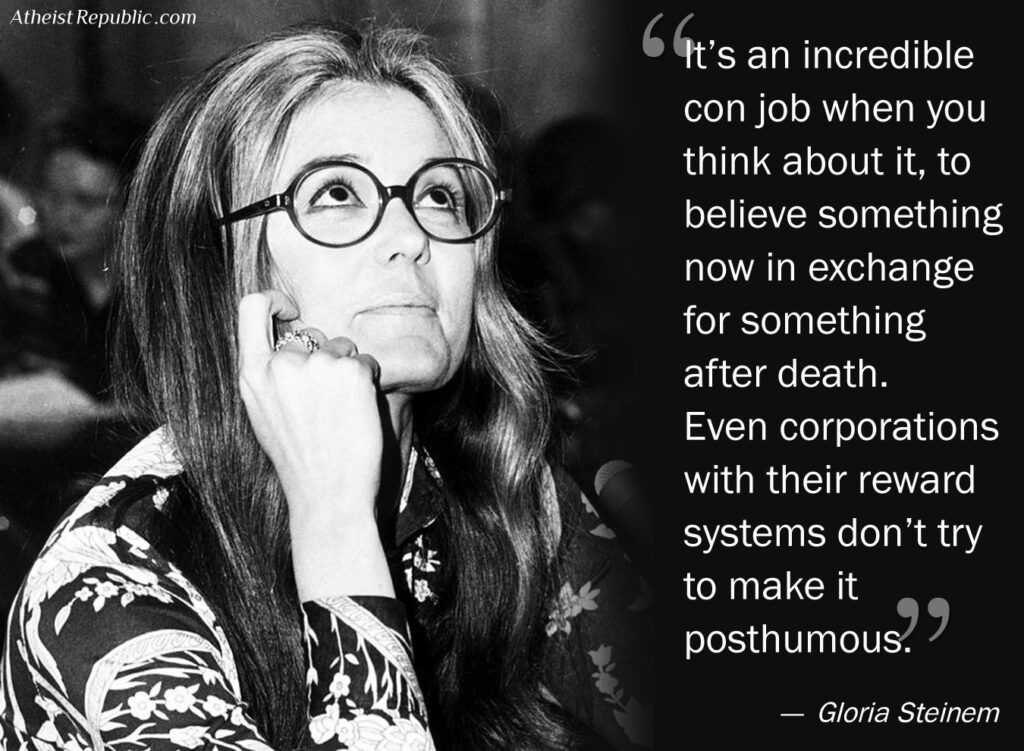
But we still fall for it, don’t we?
In fact, it would seem that in the religions practised by the majority of humanity (90%? I don’t know, just guessing) are all more concerned about your life before being born and after you die. Very few of them concern themselves with what you do on Earth when alive, since most consider this existence as some kind of illusory passing phase (whether it is the concept of ‘maya‘ or that of the ‘judgement day’) and hence, the most they can think of for us to aspire to be in the ‘material’ world (the ‘profane reality’ as Will Deming calls it; more on that later) is to prepare for the next by some form or the other of ‘renunciation’. They all concern themselves with the ‘here & now’ purely for reasons of the ‘there & then’.

Breathable air in a can? What an idea, Sirji?
About the definition of religion. After an excruciating 14 pages of writing down every known & believed definition of religion (‘religion is a belief in god’, ‘religion supplies comfort in times of crisis’, ‘religion is created by societies to enforce their norms & values’, ‘religion is the opiate of the masses’, ‘religion is a creation of visitors from outer planets’ etc), Will Deming finally defines religion as ‘one’s orientation to ultimate reality’. It is profoundly true for any closely held belief. I cannot see it as religion. In fact, the definition is so contrived to that it is devoid of any character and is so completely insipid that I wonder why the book was not leaking water. The definition tries to position religion as ‘vapourware’ so that it can be made to mean whatever the speaker wants based on what the crowd wants to hear. However, it is clear that this definition stems for the desire (and, I daresay, the compulsion) to justify that belief in a personal god and an acceptance of scientific enquiry are essentially one and the same: they are your orientation to what you consider the truth.
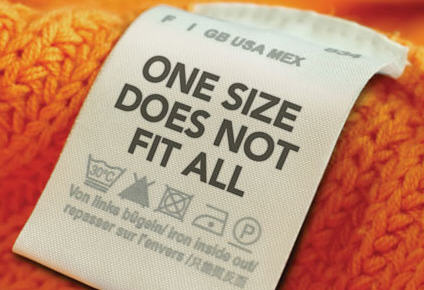
There is only one religion. Only different fairy-tales.
Now, I feel for him and those who think this way, since they go on to use even more reducto ad absurdum logic to religion and the justification of blind faith by proposing that it can be studied and practised just like any of the analytical arts (‘sciences’ is a term I am not using purposely here). So, the process seems to be: first create something that is a ‘one-size-fits-all’ cap with a Velcro tape that can be adjusted; then tell everyone that your heads are all of the same size since this cap fit everyone – QED.
Balderdash, I say. Once again, circular logic comes into play. Every time I want to have a meaningful dialogue about religion (can there ever be?), I am faced with circular logic that depends, not surprisingly, on twisting language and not on stating facts.
Another issue that gets me thinking is the stand that (this is a quote by Santiago Zabala, but I have heard it too often to attribute it to him alone): “Actually, the assumptions that all positions are equally valid because of the lack of confidence in truth constitutes the greatest success obtained by the deconstruction of metaphysics”.

Metaphysics? Isn’t it like quantum physics?
I hate this word: metaphysics. It seems to position irrational and patently non-evidence-able issues on the same level as analytical arts, as if this is a vertical by itself that is an extension of physics at a higher level of some sort (just the way the word ‘metaphysics’ itself is constructed is presumptuous to say the least, though it is a matter of debate whether the word ‘physics’ came first or ‘metaphysics’, considering it is used in ancient languages before ‘physics’, just another point where language is the limiting factor). However, the more the religious apologists make a case out for religion as ‘faith’, the more they turn to the analytical instruments (of the very science they intend to prove wrong) to abuse, twist and mangle them just to prove that there is something to analyse in blind faith.
They try and portray it as some kind of science, whether it is the Hindu fundamentalists who keep claiming that all that had to be invented or discovered has already been done by the ancients in the religious texts (I have heard with incredulity extremely learned Pune scholars from the Bhandarkar institute claim that the concept of ‘brahmastra’ would and could not have been just someone’s fertile imagination but actually proves the discovery of the atom and the ability to split it and create an atomic weapon at least 7,000 years ago by the Hindus. Obviously, this was written before the ‘Ram Setu’ controversy, where it applies equally) or the Jews searching for Noah’s Ark’s remains on Mount Ararat with a highly educated, extremely intelligent and professional team of archaeologists who ought to know better or the Turin shred held in reverence by the Christians, or the hair of the prophet in Srinagar or a tooth fragment of Buddha in Kandy (yes, I know this equally applies to the mausoleum of Lenin. Just my point about blind faith not needing to be called ‘religion’ and how language plays the pivotal role in any debate about faith).

Is this what religion expects you to do?

Or this?
Of course, these are the same people on whose shoulders stood other less educated people and killed Muslims and brought down historical structures while still others created a country purely by the power of money in a place that can only be called a desert just because ‘this is the land that God gave Israelites’, each one using the excuse that theirs is essentially a religion of peace but they have been persecuted because of their in-built tolerance and it is only after substantial provocation that they are now, with a shrug, killing other people (collateral damage: another invented word) and taking away their liberties.

Yes, please.
About ‘peace’, I am sure you must have been told on several occasions that the word ‘Islam’ means ‘peace’. I am afraid to burst that bubble, but that is a transliteration that has been twisted to fit the clearly politically incorrect square peg into a politically correct round hole. Literally, and otherwise too, ‘Islam’ means ‘submission’. Now, why does that not surprise me? All religions, in some way or the other, being essentially about power, talk of and hold high the ideals of renunciation, submission and feelings that can clinically only be called a classic inferiority complex that they force down the believers’ throats. The concept of being culpable of committing a sin even in the act of breathing (Jainism), being born (Judaism and Christianity) or any other example from any other religion, and using that guilt to create a power base for those who control the strings (the priests) is so blatant that the approach actually works.
Later Edit (as loudspeakers started blaring Buddhist prayers on ‘Buddha Poornima’ today): Even for a religion that presupposes the absence of any supernatural force (or that is what we have been led to believe by Buddhist apologists), the one hymn that is the most easily and popularly identifiable with Buddhism is “buddham saranam gachhaami”, which means that “I submit/surrender to the buddha”. I wonder that out of the million other beautiful and wise things that could have been the trademark/tagline/motto/war cry of this very philosophical religion, why THIS particular line is considered the most apt for popularising it with the common folks? Surely, this has been thought up by the priesthood and surely, only an idiot will not see the not-so-subtle attempt at domination and the demand for blind submission here. Is it not clear to educated, thinking people? Or are these believers not thinking?
Of course, the apologists are quick to point out the root of the word “buddha” to be “intellect” and so on and how this is only figurative and symbolic etc. They forget that this is followed by a similar promise to surrender to the society and the religion, or “sangham” and “dhammam” respectively, which, once again are given spins by the self-same apologists in a way that makes these misfit pegs fit in the smooth politically correct holes, using language to convolute and twist things conveniently to mean what they want by selectively deciding what is literal and what, figurative, when they want it. Semantics: just what this whole mail/post is about.
Back to the other issue: “all positions are equally valid because of the lack of confidence in truth”. I cannot bring myself to a feeling of enough outrage at hearing this from a respected scholar like Zabala or the pope or whoever it is that people follow & trust. However, even more irritable is the fact that people who ought to know better, the scientists, engineers, doctors, the whole lot, actually buy this as a counterargument to scientific enquiry. As for me, I find it appalling. All positions are not equally valid. I do not even want to go into a discussion about this argument that is so facetious and just plain wrong. But I must, since it nauseates me to a level of finally being compelled to vomit.
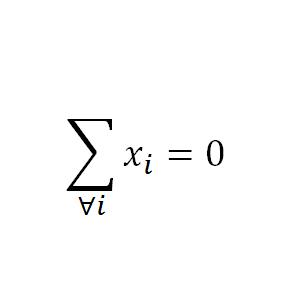
If I win, you lose. If you win, I lose. Better, I win!
I do not even know where to start. I have written several sentences, deleted them and rewritten them, but have not found a starting point. Why am I so angry at this? The reason is the same as my problem with religion. If religion did not offer you an alternate (compared to the other person’s) worldview, a different way to look at the world, and if it did not do so on a zero-sum, exclusive basis, I would have no problem with it, maybe (and this is a BIG maybe).
But it does. And every religion considers only ITS position as valid and others not only as invalid, but as definite threats to its position. Every religion I know of, every philosophy I know of that asks you to believe in it blindly, seeks to position itself as the sole arbiter of every action before, during and after the death of a human. It positions itself as the deciding factor for the way a person thinks about the world, other animals, people, even food, sex, taste in clothes, days and times of work & rest, family relations, money, even which side of the bed you get off on. To claim that all positions are equally valid as an argument FOR religion is factually incorrect at best and is, at worst, an insidious attempt to give a humane (and ‘rational’) face to the acts ranging from as harmless (in a way) a thing as standing around clapping your hands and singing hymns/artis to as stupid as teaching that the world was made in 7 days or was sneezed out of someone’s nose, to as evil as commandments & divine laws that not only encourage you to kill others, but also actually compel you to do so by way of bribery, guilt or coercion through a claim to divinity, or of an exclusive channel to divinity.
But back to the same sentence again: all positions are not equally valid in any case, religious or otherwise. But to claim that this is so because of the lack of confidence in truth is even more evil. If it weren’t about creating & moulding one’s disposition with a view to generate an ‘us v/s them’ lens through which to see life, this would be funny (it would be like a movie. You buy a ticket, you suspend disbelief for a couple of hours and you laugh, cry, get angry and feel sad with the protagonists depending on how well the story is told, and then you go home, leaving the movie in the movie theatre and connecting with your real life outside it. You may choose to be affected by a well-told story, but it is up to you and the storyteller). But it is not funny, since once again, not only is it factually incorrect, it sounds, to any layperson, something that is prima facie THE clinching argument against science: you are a ‘believer’ in science, I am a believer in faith and so, we are both equal and that our views are both equally valid and that science in some way, lends itself to being a kind of religion since you and me are both ‘believers’. The operational phrase is that we both ‘lack confidence in truth’.

Please tell me you are kidding.
This is such a circular argument that my head spins at the thought of trying to counter it. Just reading it again and again makes me giddy.
Let me start with science first in this case: yes, there is no confidence in truth because that is the way science is constructed. The way it is constructed is that there is no permanent or all-encompassing truth, only conjecture and hypotheses, all open to questioning & correction. Of course, the quest is always to get as close to the truth as possible, but that does not mean that science claims to have found it yet. In science, everything has a cause and an effect, what cannot be explained is only because we lack the tools to explain it and not because it is ‘unexplainable, but for faith’. Science allows you to test every bit of the so-called ‘truth’ and clearly has a way in which you may apply this ‘truth’ any given situation, even those that have not happened yet, and be able to predict that the outcome of that application is likely to be. When it fails to apply, it is no longer regarded as ‘truth’, it is not something that your father, your community, your school, your laboratory or your society would hold against you if the Newtonian principles stop applying with the introduction of the theory of relativity or quantum mechanics. You cannot and will not be held in contempt, persecuted, threatened, ridiculed, excommunicated or killed because you have found that in a certain scenario, the prevalent formula ceases to work and a new one is found that works in the previous scenario as well as the one in which the old failed.
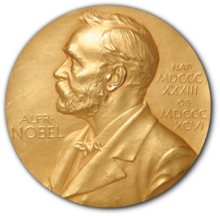
Thank you, sir, for proving us wrong.
In fact, you would probably appear on page one of the newspaper, be awarded the Nobel prize, feted around the world and your work would be accepted as the replacement for the old ‘truth’ since the new ‘truth’ you discovered/invented now explains more and/or better the things of the past, present as well as can predict the future better than the old.
So, once again, the answer to whether I have confidence in truth is both yes and no. Yes, I do think I may have some tools that explain the way things work, how and why they worked the way they worked and how they are likely to work in the future. And no, I do not think that all of these ‘explanations’ are unchallengeable or ‘ultimate’ in any respect. In fact, not only would I not be at physical, emotional or societal risk for challenging them, but in fact, would be celebrated if I can truly explain things better. So, no, I do not have confidence in ‘my’ truth since I have yet to find it, though the search for it is taking me through some fantastic and decidedly scenic territory.
However, this kind of argument plays straight into the hands of the ‘faithful’ since I have chosen to defend ‘science’ as if it is a belief system that I have converted myself into. The moment I start defending science, I open myself to be painted with the same brush as those wonderful folk at Daarul-ifta-Manjar-e-Islam, the Vatican, or the Tirupathi Devasthanam. That is why rational thinking people are goaded into a defensive position: so that they are compelled to find something to defend and can then safely be labelled as ‘believers’ in that ‘faith’.
The reasons are not very hard to find. They are embedded into the very tool we use to talk about rationality. It is language! And to this, I shall keep returning again and again, in this mail, and later. I am convinced that correct, sufficient and precise language, or the lack of it, is one of the reasons why the trap exists. Of course, I have no solution and am merely stating my own diagnosis.
Now, about religion and the confidence in truth. This is far easier to demolish since it is a self-defeating argument for the ‘faithful’. If you do not believe you have the ultimate truth or that your faith inspires not enough confidence in the truth, is that not a clear case of this faith not being the answer? And if it does embody the ultimate truth and arouses that kind of confidence in you and your co-believers, then all positions are not valid (since only yours must be, considering that religion positions itself on a zero-sum basis) and the entire case collapses. This sentence (about all positions being equally valid) is the ultimate exercise in political correctness, apart from being a sneaky attempt to equate, say, our understanding of evolution of species with the belief that God made woman (Eve) from Adam’s rib bone.

So, all positions are not valid if you truly believe in religion. Of course, if you lack confidence in the truth of your religion, you are not a believer, and your ‘religion’ is just a set of silly rules made up by tribal people living in a desert 2,000 (or 5,000, depending on what flavour of fairy-tale you believe in)-odd years ago, of which no practical application can be thought of in today’s world, or indeed, in your, or anyone else’s life today.
So much for trying to fit religion and science in the same box and getting Einstein to shake hands with Moses, while calling Dirac & Heisenberg, Bose & Chandrasekhar to the party with Ram, Mohammed & Mahavira and then expecting them to drink from the same punch bowl.
But I am not at the end of my rant just yet. However, I am at the end of my tether. In the recent past, every day I see stupid people doing stupid things and compelling others to do even stupider things. The most harmless (if there can be any such activity) of them are debating which way the Malaysian astronaut would face to pray when in space, whether he would fast during Ramadan, what constitutes a sunrise/sunset and how would he conduct the entire kneel-bow-stand-bow ceremony in zero gravity. Some other idiots are issuing fatwas against other idiots for attending a ceremony where an elephant-headed idol is the centre of lots of clapping and singing because this ‘fatwaed’ man (who also happens to be a superstar) is supposed to profess another faith where he is supposed to be bending five times a day towards a black stone in a desert in Arabia and not attend parties with clapping, singing and lot of food.

Built with floating rocks 10,000 years ago by monkeys?
The more dangerous of them are pressurising the archaeological society of India to certify that an army of monkeys built the small part of the continental shelf made of sand and coral that kind of juts out into the sea and takes away 30 extra hours for ships to circumnavigate Sri Lanka since the straits between India and Sri Lanka are unusable due to this ‘bridge’ made by monkeys some 10,000 years ago.
The even more dangerous of them are sitting in an air conditioned house in Pakistan, dyeing their beards with the latest L’Oréal hair colour and making speeches inciting people to commit mass murder and suicide.
And then, there are others are going around a country that possesses the maximum number of nuclear warheads convincing people about whether god intended man to have sex with another man and if a one-week-old tadpole-like foetus is really a living being, or should we consider every sperm and every egg a living creature, because based on this (and of course, on other crucial issues like whether they would be allowed to carry automatic weapons to school), these idiots would get elected by other idiots so that they can have the privilege of carrying around a fancy little black briefcase with a red button that they can press and destroy the world. Now, how cool is that?
But that is not all. There are people who, as I mentioned earlier, ought to know better: scientists, astronauts, biologists, engineers, sociologists, doctors amongst them that believe in some sort of fairy tale about the way the universe was ‘created’ by an ‘intelligent designer’ and that there is a purpose to all this. I am sorry, I should have said ‘higher’ purpose to all this. The problem is to convince these people that the only thing that seems, superficially, as ‘intelligence’ this botanical/zoological system carries is that those who are not fit for survival die early and have less chance to reproduce and those who are, live.

Why not?
However, the small problem that this creates is: are all those people who do not accept that this is the truth fit to survive? If religion has survived, it must, by my own argument, be the characteristic that is necessary for survival and hence, faith, a desirable trait to have! Have not people with ‘faith’ created the most amazing marvels, invented almost everything that we depend on in our lives, discovered the magnificent and fantastic marvels of how nature functions and been at the forefront of all that I hold dear? To answer this, the question needs to be rephrased: did these people do all these fantastic things because of faith or in spite of it? Was Galileo a Christian by his own admission? Yes, he was. Did his insight into the inner workings of the cosmos contradict what his faith told him? Yes, indeed it did. Why then, did he carry on? Would Michelangelo have been as great a painter if he were not painting Sistine Chapel but someone’s house? Maybe not. But was it the fact (?) That it was the house of god (purportedly) that inspired him to his best or was it his understanding that this was a house of god that inspired him? Would he have painted the toilet if he was somehow led to believe that Jesus himself used it? Of course, yes. The greatness of his art came from within, it came from his own belief that he was doing something for a ‘higher purpose’ and not because there is a higher purpose. The concept of a placebo best describes this. The mind is truly the master of the human body and its capabilities. If the mind is convinced about something, the human body responds to that. So, does this convincing have to be spiritual? Can it not be chemically induced? Is not the feeling that the red (indigenous American) Indians or the Indian sadhus (mendicants) get while smoking cannabis the same as that a worshipper gets while in the throes of loud clapping and hymn singing?
So, it is not that belief drives you to be a better human, it is your belief in belief that drives you. But this belief in belief also drives other people with more dangerous agendas to doing things that someone who had no belief in belief would find insane, inhuman or silly.

Well?
So, is the right question to ask: do we need religion? Even assuming that it is a silly ancient practice, do we need to keep it for the good it does? Does the good outweigh the bad? In an popular old movie about Santa Claus, the defendant asks the judge about Kris Kringle, a man who claims to be Santa himself: “even if this man here were not to be the Santa Claus, should the court declare that he is a fictional character and deprive children from across the world (he was exaggerating a bit here, of course, maybe because ‘Africa as a cause’ was not so big then) the beautiful childhood fantasy of there being someone who rewards you for doing good?”
In short, even if religion were to be proven as false, would it be better to go on believing anyway since the good it does is far more than the evil it perpetrates? I know the answer is no, but that would take on a whole new communication. I shall save it for later. I intend to throw light on whether religion is something that we ‘need’, about other forms of ‘faith’ (patriotism, marriage, luck), about the ‘higher purpose’ question that remained unanswered (there is none, sorry to disappoint you guys…we have no higher purpose but to live as long as we can and reproduce) and of course, about what are the alternatives then? (the answer is we don’t need any). I shall endeavour to write when the feeling of expressing myself overtakes me and so, do not expect me to write regularly (I know you guys are thanking your own personal gods for this bit of good news). However, that is it for now. All I wanted to do was to bring to your notice the fact that language seems to dominate any dialogue on religion and faith and considering that the very medium is so biased towards faith, it becomes difficult to fight the sword-maker with a sword he made :-). My next mail would probably carry the theme of language, hermeneutics and ontology. Let us see.
Love,
K

Good on ya, mate!
P.S: I know I have deviated from the topic of language and gone on a rant. But what the hell. It was my rant. And I had to get it out of my system. I shall write more about language later. I truly believe that the current language limits our expression of the way the world is now. It is not that the concept of light as a wave AND a particle is impossible to grasp (it is difficult, no doubt) but that one has to use a medium invented several millenniums ago to try and describe it. Another fascinating insight is from two people: one is Christopher Hitchins who wonders if the earth is like Australia for some ‘higher’ species from another solar system and that these highly evolved and intelligent beings seem to consign on earth all the lunatics and the insane or other kinds of humans that are unfit for survival otherwise. In a way, it might seem we are all Aussies! Well, at least that makes us less humiliated when we lose a match with them, what? LOL. The other person is yourself (S): the concept of the primary (the last, the unbreakable) particle in the world might as well be the ‘moron’, discovered by the fictional ‘Dr. Abhimanyu Mor’. The world is all made up of morons. Then, of course, you had the hypothesis (which is sounding more and more sane to me as I live longer) of the alpha moron and the beta moron and so on and how they interact and how their interactions increase the stupidity of this world. Well, I could do with some more juice on that topic.





